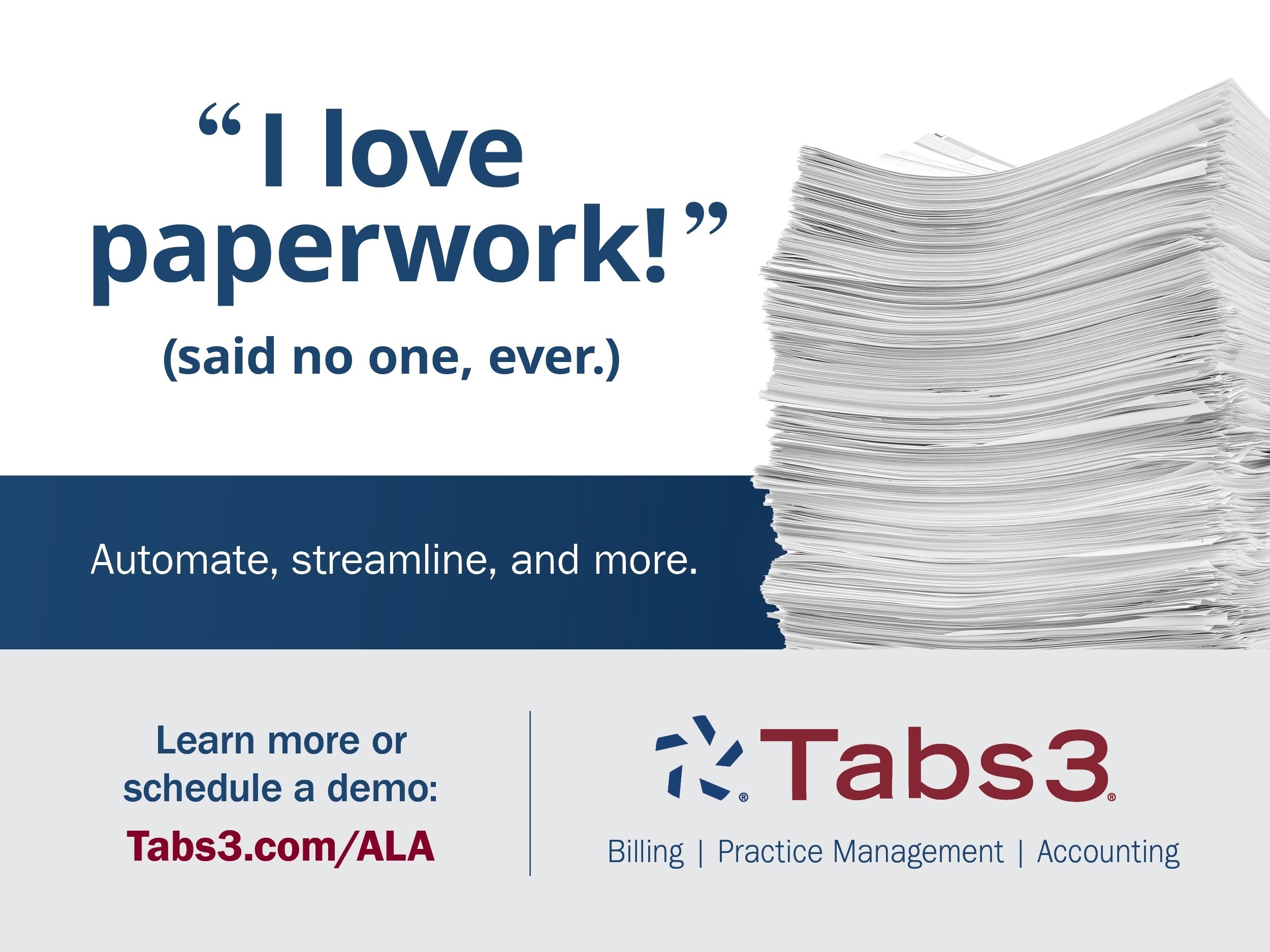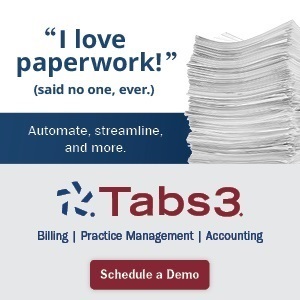The approximately 10-attorney New York- and Florida-based firm doesn’t have multiple distinct levels for paralegals to ascend to. Instead, Burnett-Orsini says she’s gauged her career progression by the work she’s been asked to perform.
“Being brought into matters that might involve more research or complicated issues has helped me acknowledge I am advancing,” she says. “My responsibilities have evolved over time.”
Some attorneys, too, now view the path to partnership as less of a lockstep progression than before the pandemic, says Kevin Morse, Deputy Member-in-Charge at Clark Hill’s Chicago office. Since joining the firm in 2019, Morse has established a retention committee that‘s examining how to ensure younger — and other — firm members feel they can grow professionally within it.
“The world has changed significantly since spring 2020, and what the workplace looks like has changed,” Morse says. “There’s more of a holistic idea of what it takes to be a successful attorney. Given that we spent two years apart, we have opened up to other ways for young attorneys to excel and really contribute to a firm and become a partner.”
Advancement can be a key hiring and retention factor in numerous industries — including the legal sector, where the average job tenure has sunk lower each year since 2016, according to NALP data.
To help law firms, departments and industry members identify the opportunities that will provide the biggest occupational payoff, we spoke to several experienced legal professionals about some of the most notable elements that have helped shape their career.
TRYING NEW THINGS
Encouraging staff members’ interests, such as working in other practice areas, can potentially help them discover new career-oriented passions, says Chris DiBella, who’s been practicing law since 2004 and owns Massachusetts-based DiBella Law Offices, P.C.
“Talk to as many people as you can,” he says. “It might just be shadowing another department for a day; [or] grabbing lunch with somebody to see what they like and dislike about their position. It certainly led me to be exposed to a lot more than I started out doing, and it’s benefited me greatly because a lot of areas of law are very cyclical. I’ve been able to weather different economic downturns because of that.”
“There’s more of a holistic idea of what it takes to be a successful attorney. Given that we spent two years apart, we have opened up to other ways for young attorneys to excel and really contribute to a firm and become a partner.”
Daniel A. Scola Jr. is a Managing Partner at Hoffmann & Baron, LLP, but before joining the firm in 1991 worked as a senior patents and trademarks counsel at The Warner-Lambert Co. and an intellectual property attorney at Loctite Corporation. He made sure to seek out mentors earlier in his career to help him learn how a company he worked for operated. Scola also gained hands-on industry knowledge by offering to fill in attrition gaps.
“I saw taking on others’ responsibilities when someone left or was fired as a chance to learn and climb up in the organization,” he says. “My experience at that stage was largely in the patent field, so when the [trademark] director retired, my willingness to do two jobs gave me exposure to trademarks.”
After working on some other types of matters at the start of her more than 20-year career, Christina Dufresne, a Paralegal at DiBella’s firm, gravitated toward real estate.
“I dabbled in a few other areas [at the] law firm I first worked for,” she says. “But my passion ended up being real estate; I just went and worked for law firms that primarily did real estate law. I really was intrigued and loved the research of it and the interaction with clients and people we work with.”
GETTING IN CONTACT
From an adversary attorney to fellow firm members who might become someone you can talk to openly about your job, building connections can help position less experienced professionals for later career success, according to Morse.
“Don’t be afraid to ask someone questions — just go into their office,” he says. “That’s what I hope young attorneys, paralegals and professionals will do. Whether it’s inside or outside of your office — attorneys, other professionals or potential clients — those connections matter down the road, so build them early.”
Dufresne, for instance, at one time attended occasional workshops that offered a chance to connect with other industry members.
“Paralegals would get together at a restaurant after work,” Dufresne says. “You kind of network that way.”
“Don’t be afraid to ask someone questions. … That’s what I hope young attorneys, paralegals and professionals will do. Whether it’s inside or outside of your office — attorneys, other professionals or potential clients — those connections matter down the road, so build them early.”
Continuing legal education courses, in tandem with entering into co-attorney agreements in which he partnered with another lawyer on matters, helped DiBella branch out.
“They have an investment in the case, but I’m also learning as I go,” he says. “I would use those to really build my experience because at different stages of my career, I wasn’t in a law firm where you would just go to the head partner and try to seek advice.”
ASKING FOR INPUT
Younger professionals may be hesitant to pose questions, Burnett says, because they think they should already know the answer. However, asking the attorney or senior paralegal you’re reporting to how long it should take you to draft a will or LLC operating agreement can give you a sense of whether you need more guidance in that area.
“That’s how you advance,” Burnett says. “There are attorneys who use different databases on a daily basis. Learning how to do searches appropriately could be really helpful; it cuts down on time. It shows initiative, that you’re trying to understand and process tasks that are given to you.”
Burnett is also a proponent of requesting a review from supervising partners.
“If you haven’t had one, ask ‘How am I doing? Is there anything I could improve?’ Or [say] ‘I was thinking I could do X,Y and Z,’” she says. “Share your interests. Don’t be afraid to engage them about it. There might be somewhere where you might be able to help out, and who knows where that will take your career.”
LEARNING FROM LEADERS
Early in his career, Morse appreciated a judge telling him not to feel like he had to try to fix errors he might make.
“Young attorneys have so much pressure to be perfect and do everything correctly — and young attorneys make mistakes,” he says. “The judge said to me, bring it to someone’s attention and let them help you because someone’s made that mistake before. And what you don’t want is it to grow or not be handled.”
“Setting targets are a good thing, but being open to change is, too, because you don’t know what life is going to throw at you,” he says. “I’ve never been shy as to what I’m looking for in my career.”
Scola took courses and turned to experienced colleagues when looking to develop leadership skills he says have come in handy over the years.
“I learned from interaction with both upper levels and lower levels on the legal team that in addition to content, the presentation format and style, timing and your outlook — positivity and enthusiasm — were major contributors to leadership,” he says.
ESTABLISHING — AND BEING WILLING TO ADJUST — BENCHMARKS
For a number of industry members, goals can change — DiBella included. He says his main intent when launching his firm — surviving financially — later expanded to include wanting to work in additional practice areas.
Because guideposts can shift, Morse recommends clearly communicating your desired path to leadership, who may be trying to keep track of numerous employees’ ambitions and appreciate the update.
“Setting targets are a good thing, but being open to change is, too, because you don’t know what life is going to throw at you,” he says. “I’ve never been shy as to what I’m looking for in my career. I’ve always had good relationships with people I worked with or for, and I’ve let them know, here’s what I’m looking for in my position. Here’s how I’m going to try to go about this; what can I do?”
If, due to size or time constraints, industry members can’t obtain the career development guidance they need within their law firm or department, other resources, DiBella says, may ultimately prove beneficial.
“There’s a lot more help out there than you think,” he says. “There are a lot of bar associations and great people with a lot of experience that they’re very willing to share. The older half of the bar may actually be excited to talk about what's worked and hasn’t and provide mentoring. I would encourage people to seek that out, because I think they’d be pleasantly surprised by the response they get.”


